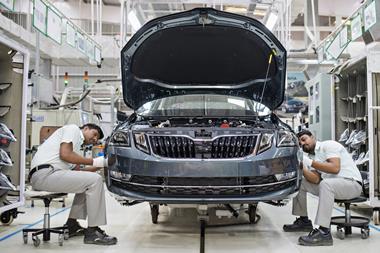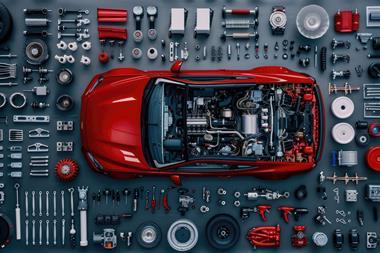Adaptive welding remains a small proportion of the UK’s welding market, but offers improved weld quality and reduced costs according to Bosch Rexroth. The compmany believes this type of system has the potential to offer more control to a production process as it monitors the condition of the weld during the process every one millisecond, claims the company. Such monitoring compensates for process disturbances by adjusting current and if applicable, weld time. The important component in the Rexroth adaptive welding system is the U (voltage) I (current) regulator. The regulator ensures that the same amount of energy that was required to create the reference weld is inputted into all subsequent welds. A warning or error message can be communicated if a process limit has been exceeded. The company says additional benefi ts also include a reduction in post-weld checks and a reduction in the number of test parts and time taken checking the weld condition.
- Plant Functions
- Smart Factory
- Register now: Automotive Gateway Mobilizer - Mastering Communication Challenges in Battery and EV Components End-of-Line Tests
- New whitepaper: BASF and Catena-X: Creating a more connected and efficient automotive industry
- Watch now: Digital Transformation at Inflection Point within Automotive Manufacturing
 AMS/ABB Automotive Manufacturing Outlook Survey 2024 results
AMS/ABB Automotive Manufacturing Outlook Survey 2024 results
- Electrification
- Automation
- Sustainability
- Events
- Companies
- Materials
- Regions
- Kaizen
- Video and Audio
- Magazine
- Surveys & Reports
- Newsletters
- Partner Content
- Register now: Automotive Gateway Mobilizer - Mastering Communication Challenges in Battery and EV Components End-of-Line Tests
- Watch now: Digital Transformation at Inflection Point within Automotive Manufacturing
 Henkel’s advanced thermal management for ADAS reliability
Henkel’s advanced thermal management for ADAS reliability How Henkel is co-developing the EV batteries of the future
How Henkel is co-developing the EV batteries of the future
- Whitepapers
- Media Pack
- Register
- Sign In































